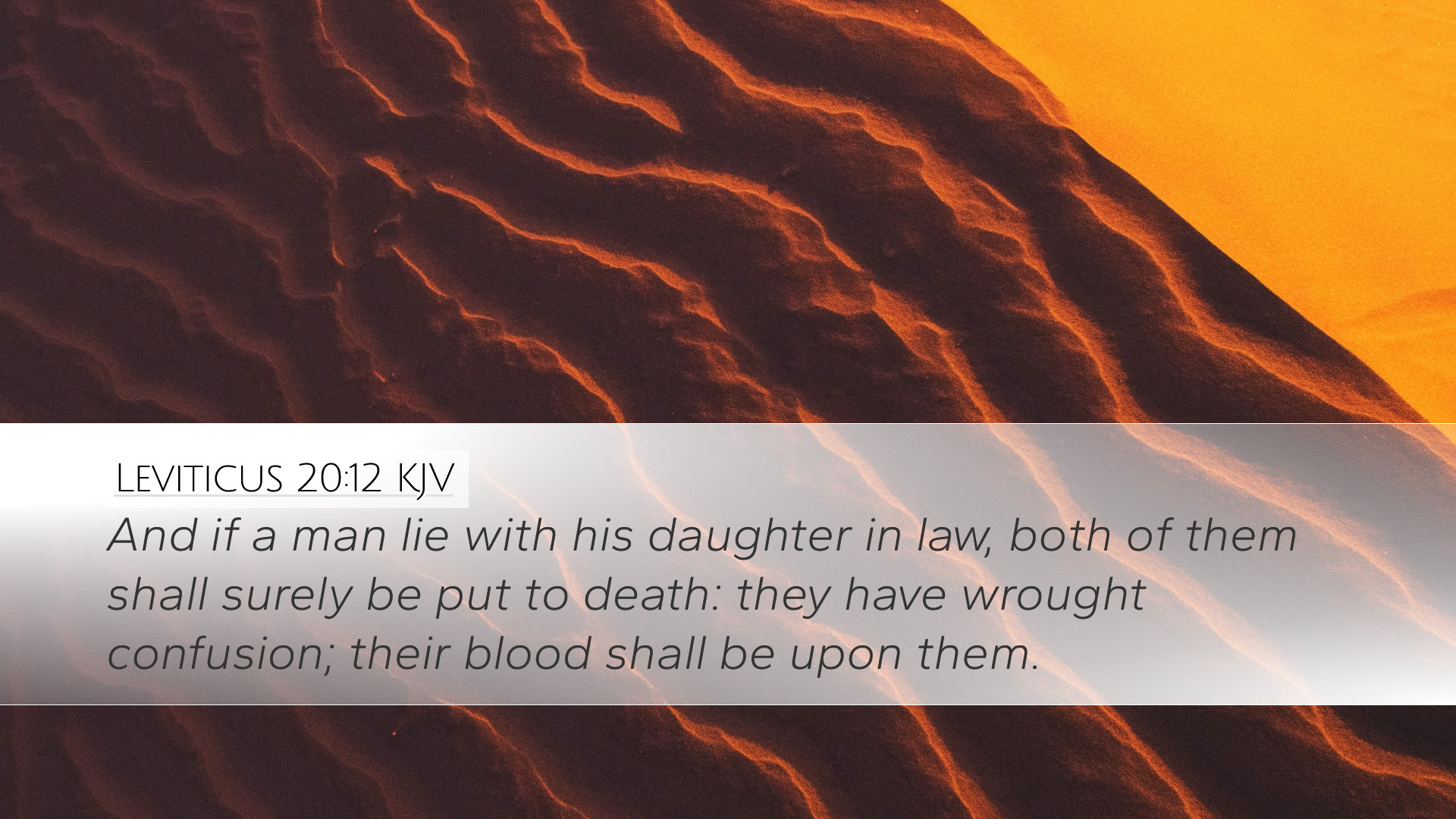Commentary on Leviticus 20:12
Bible Verse: Leviticus 20:12 - "And if a man shall take his aunt, his father's sister, or his uncle's sister, he hath uncovered his nakedness: they shall bear their iniquity; they shall die childless."
Contextual Introduction
Leviticus 20 is a chapter that outlines various laws related to sexual morality and punishments for immoral behavior within the community of Israel. The context for this verse lies in the broader framework of holiness that God mandates for His people. Leviticus serves not only as a legal document but also as a guide to living a life that reflects God’s holiness. Specifically, chapter 20 reiterates and provides consequences for offenses against canonical sexual conduct, emphasizing the need for the Israelites to maintain purity among their lineage and societal structure.
The Meaning of the Text
-
Understanding the Prohibition:
The phrase “uncovered his nakedness” is a euphemism for engaging in sexual relations. The specific relationships mentioned—those involving a man's aunt—are considered incestuous in the context of ancient Israelite law. This reflects a broader principle of prohibiting sexual relations that could disrupt familial bonds and societal stability. Matthew Henry emphasizes that such unions were seen as a violation of both God's laws and the natural order of family relations.
-
Consequences of Infringement:
The penalty for such infractions, as stated in the verse, carries severe consequences, including the potential for death and childlessness. Albert Barnes remarks that the idea of being "childless" serves as a dual warning against familial disruption and a sign of divine disfavor. The severe penalties underscore the importance of maintaining community standards that align with holiness.
Theological Insights
-
Holiness and Community:
The underlying principle in this verse, and indeed in the entire chapter, is the concept of holiness. Adam Clarke notes that God's call to Israel was to be set apart, and thus the Israelites were to avoid not only sexual immorality but any practice that would bring about spiritual and communal defilement. The preservation of the community's holiness was imperative, reflecting God's character.
-
Dynamics of Familial Relationships:
This text points to the fragility of relationships within the family and how sexual transgressions can bring about devastating consequences. Matthew Henry discusses how such actions not only corrupt the individual but also impact their lineage and their communal identity. The laws in Leviticus serve as a guide for maintaining order within the family structure, which in turn preserves the social fabric of society.
Application for Today
While the cultural context of this law may seem distant from contemporary society, the principles underlying the prohibition remain relevant. Pastors and theologians are called to reflect on how familial relationships and community integrity continue to be a vital aspect of Christian life today. The theme of holiness should drive personal and communal behavior, leading believers to seek relationships that honor God and strengthen spiritual and social bonds.
-
Restoring Relationships:
Today's believers should pursue healthy relationships that respect the boundaries established in scripture. This not only pertains to sexual relations but extends to honesty and integrity in all familial interactions.
-
The Role of the Church:
The church has a role in teaching and reinforcing the values of holiness within relationships, providing guidance to its members on maintaining God's standards in a society that often embraces moral laxity.
Conclusion
Leviticus 20:12 encapsulates a significant aspect of Israelite law that has much to teach modern believers about the nature of holiness, the seriousness of sexual morality, and the importance of maintaining healthy familial relationships. By studying this verse and its implications, we can glean timeless lessons that strengthen both our personal conduct and communal identity in Christ.


